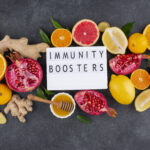Acne is one of those stubborn problems that always seem to show up at the worst time. Whether it’s a small pimple before an event or a major breakout that won’t go away, dealing with acne can be frustrating. It’s even worse when you try product after product with no real results.
But here’s the good news—you don’t need expensive treatments or harsh chemicals to get clear skin. Nature has some of the best solutions for acne that work gently and effectively. Let’s explore 21 powerful natural remedies that can help you achieve smooth, blemish-free skin!
The Power of Natural Remedies for Acne
Many store-bought acne treatments contain harsh chemicals that strip your skin, leaving it dry and irritated. This often leads to more breakouts as your skin overproduces oil to compensate. Instead of relying on synthetic treatments, natural remedies offer a gentler yet effective way to heal acne.
Natural ingredients work with your skin, reducing inflammation, killing bacteria, and balancing oil production without causing side effects. Let’s break down the best natural ways to fight acne and get glowing skin.
1. Tea Tree Oil: A Natural Antiseptic
Tea tree oil is a powerful antibacterial remedy that fights acne-causing bacteria. It works as an effective spot treatment by reducing inflammation and speeding up healing.
Mixing a few drops of tea tree oil with a carrier oil like coconut or jojoba oil makes it safe to apply directly to pimples. Letting it sit overnight allows the antibacterial properties to work deeply.
Since tea tree oil is strong, using it undiluted can cause irritation. It’s best to start with a small amount and see how your skin reacts before applying more.
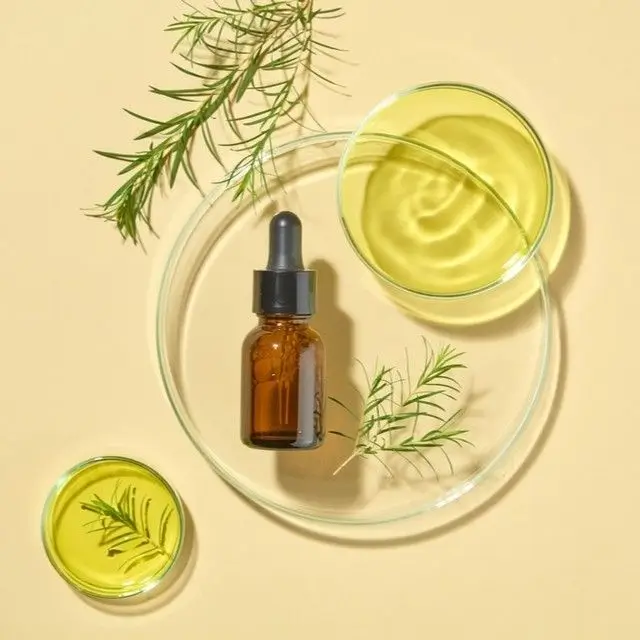
2. Honey: A Sweet Solution for Acne
Raw honey is packed with antibacterial and anti-inflammatory properties, making it an excellent natural acne treatment. It helps kill bacteria while keeping the skin soft and moisturized.
Applying a thin layer of raw honey on problem areas for about 10-15 minutes can soothe irritation and reduce redness. Washing it off with warm water leaves the skin refreshed and hydrated.
Using honey as a mask 2-3 times a week can not only treat breakouts but also help fade acne scars over time.
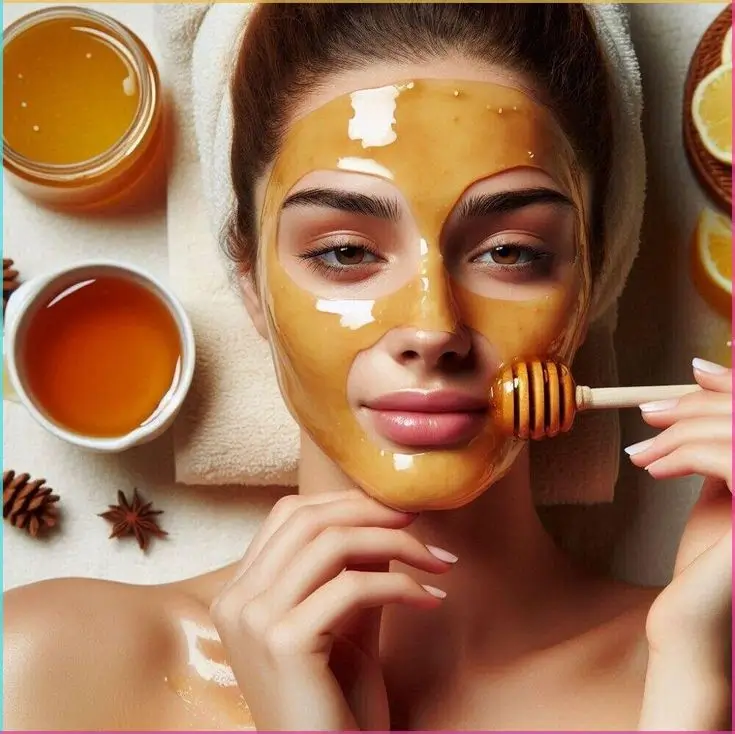
3. Aloe Vera: The Ultimate Skin Soother
Aloe vera is one of the best natural remedies for soothing inflamed, irritated skin. It contains antibacterial and healing properties that help reduce swelling and speed up recovery.
Applying fresh aloe vera gel directly onto breakouts can instantly calm redness and irritation. Leaving it on overnight allows the skin to absorb its healing properties fully.
Using aloe vera daily keeps the skin hydrated, clear, and less prone to breakouts while also helping to fade acne scars.
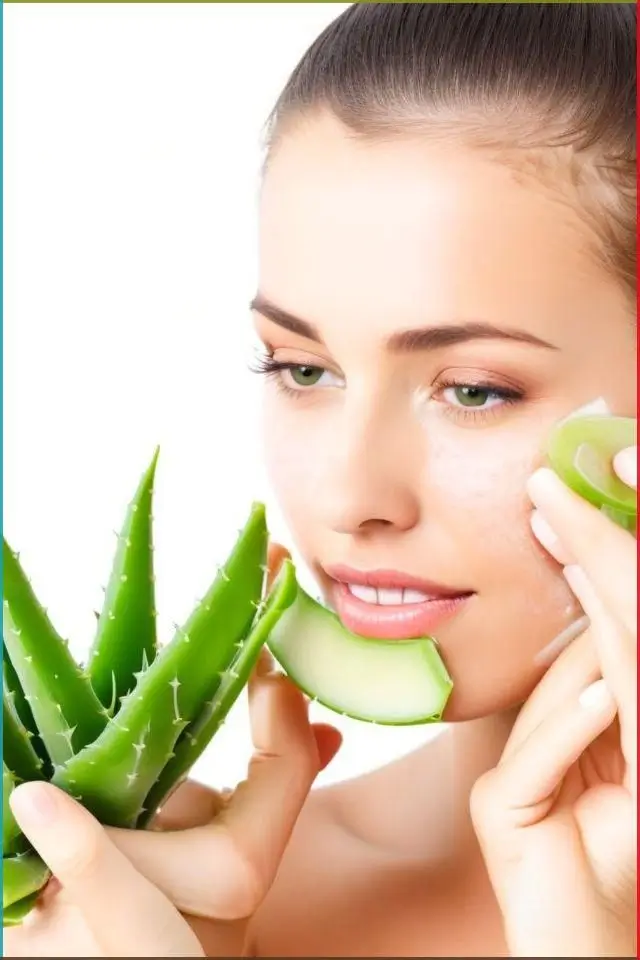
4. Apple Cider Vinegar: A Natural Toner
Apple cider vinegar works as a powerful astringent that helps balance the skin’s pH and eliminate acne-causing bacteria. It is an effective way to tone and cleanse the skin naturally.
Mixing one part ACV with three parts water makes a safe toner that can be applied with a cotton pad. Letting it sit for a few minutes before rinsing can help tighten pores and control oil.
Since ACV is acidic, it might cause irritation if used too often. Starting with a diluted mixture helps prevent dryness and discomfort.
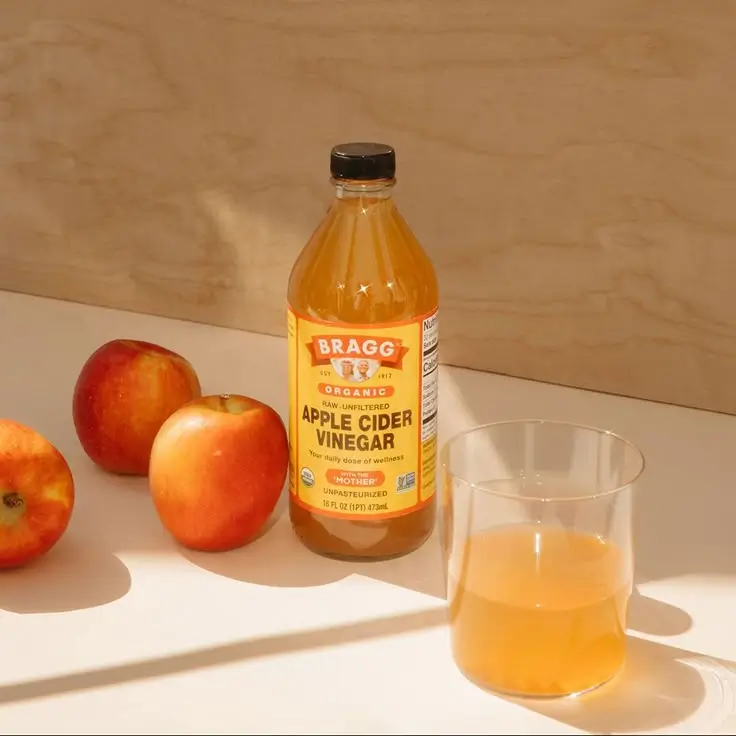
5. Green Tea: More Than Just a Drink
Green tea is rich in antioxidants that fight inflammation and regulate oil production, making it a great remedy for acne. It works both when applied externally and when consumed as a drink.
Drinking 1-2 cups of green tea daily helps detox the body and improve skin health from within. Using cooled green tea as a toner soothes the skin and reduces breakouts.
Applying green tea extract directly on acne spots can help speed up healing and minimize redness.
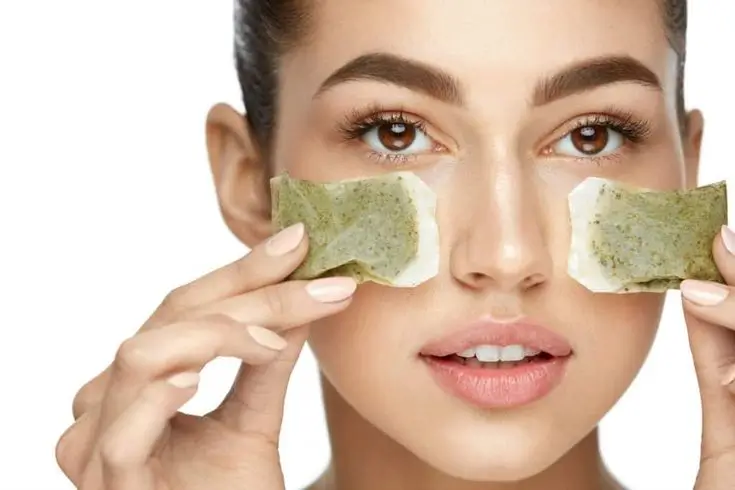
6. Turmeric: The Golden Healer
Turmeric is a powerful anti-inflammatory spice that has been used for centuries to heal skin conditions. It helps fight acne by reducing swelling and killing bacteria.
Creating a paste by mixing turmeric with honey or yogurt makes an effective acne mask. Applying it to affected areas and letting it sit for about 10 minutes helps reduce inflammation.
Since turmeric can stain the skin, rinsing it off thoroughly and using it only a few times a week is recommended.
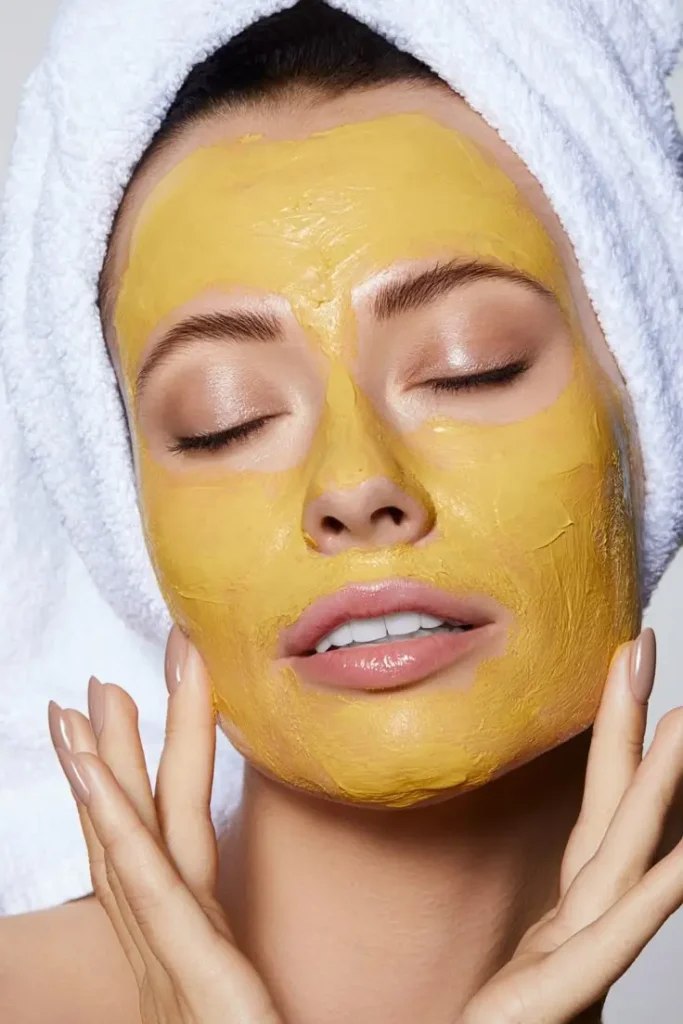
7. Witch Hazel: A Natural Astringent
Witch hazel is a natural toner that helps tighten pores and control oil production. It is especially beneficial for those with oily and acne-prone skin.
Applying witch hazel after washing your face helps remove excess oil and bacteria, preventing future breakouts. Using it daily keeps the skin balanced and refreshed.
Since witch hazel is gentle, it doesn’t cause irritation and works well for sensitive skin types.
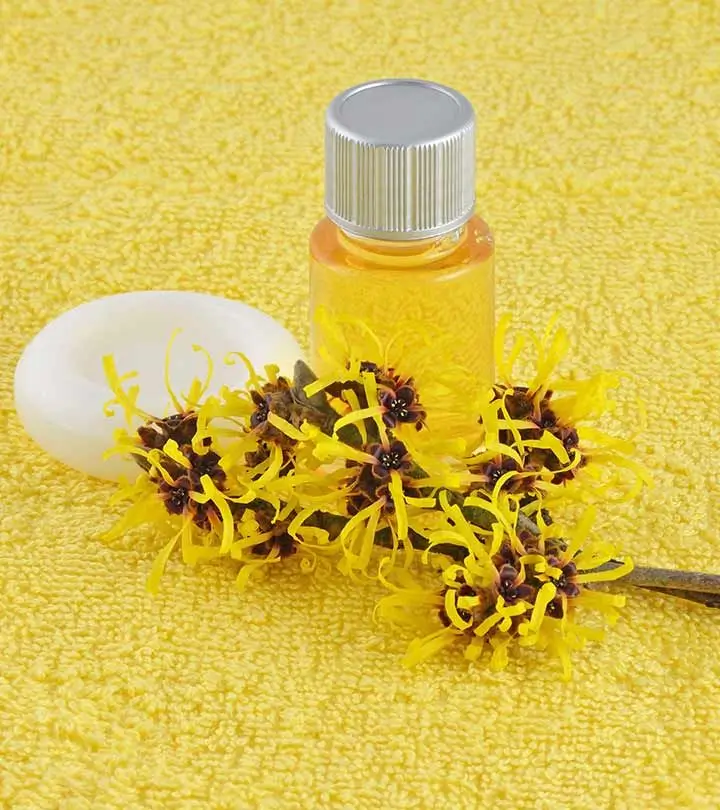
8. Lemon Juice: A Natural Exfoliant
Lemon juice is loaded with vitamin C and has antibacterial properties that help reduce acne and brighten the skin. It acts as a natural exfoliant that removes dead skin cells.
Applying fresh lemon juice to pimples and letting it sit for a few minutes helps dry them out. Washing it off with cool water prevents excessive dryness.
Since lemon juice can make the skin more sensitive to sunlight, using sunscreen is essential after applying it.
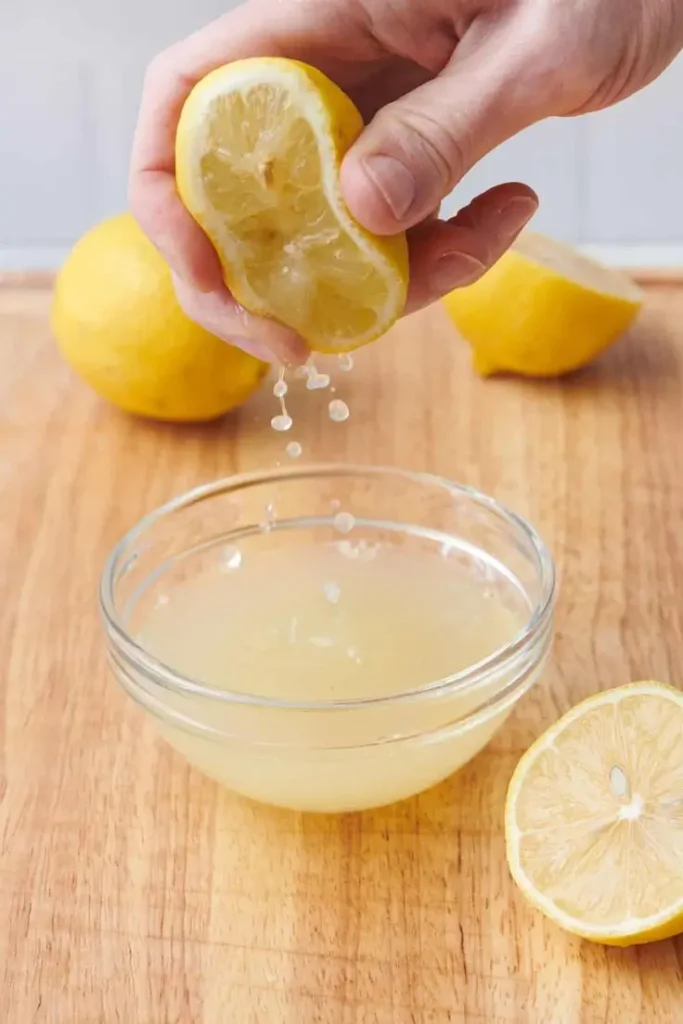
9. Baking Soda: A Gentle Scrub
Baking soda helps exfoliate the skin and absorb excess oil, making it a great remedy for acne-prone skin. It also helps balance pH levels and prevent breakouts.
Mixing baking soda with water to form a paste creates a gentle scrub that unclogs pores. Using it once or twice a week keeps the skin smooth and clear.
Overusing baking soda can cause dryness, so moisturizing the skin after use is important.
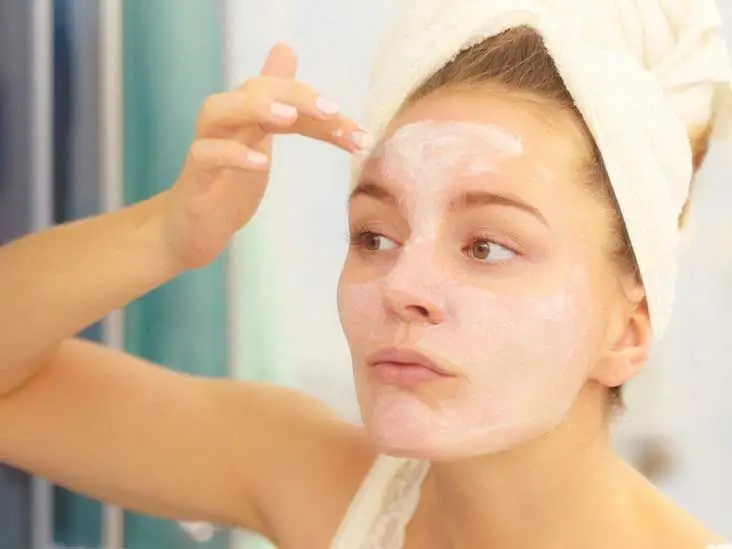
10. Coconut Oil: Nature’s Moisturizer
Coconut oil contains antibacterial and healing properties that make it beneficial for acne-prone skin. It helps keep the skin hydrated while fighting breakouts.
Applying a tiny amount of coconut oil to dry areas before bed provides deep moisture. Letting it absorb overnight helps reduce redness and irritation.
Since coconut oil is heavy, it should be used sparingly on oily skin to prevent clogged pores.
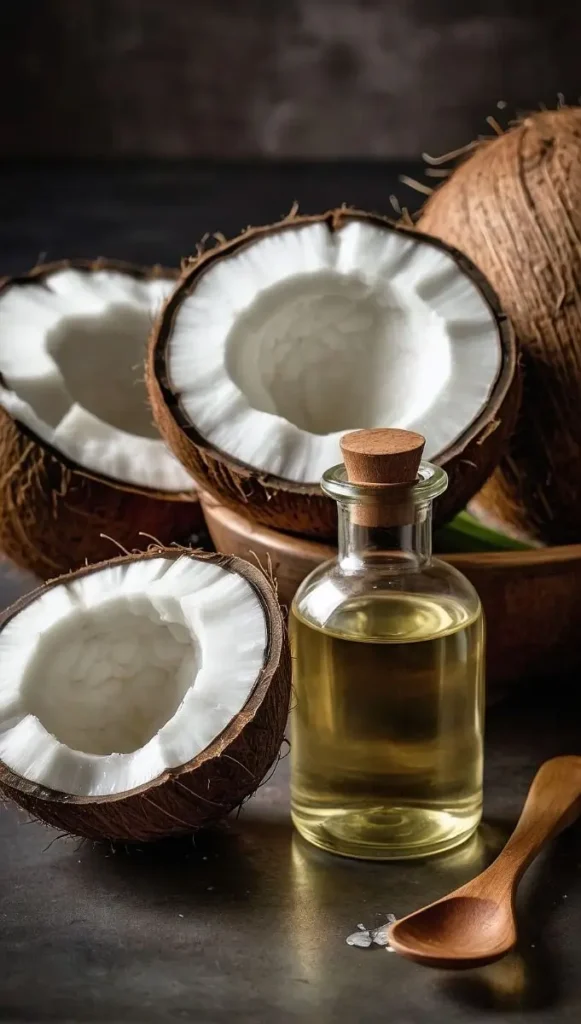
11. Oatmeal: A Soothing Mask
Oatmeal is excellent for calming irritated skin and absorbing excess oil. It provides a gentle, natural treatment for breakouts.
Using cooked and cooled oatmeal as a mask helps soothe inflammation and prevent acne flare-ups. Leaving it on for 15 minutes gives the best results.
Regular use of oatmeal masks can keep the skin soft, smooth, and less prone to acne.
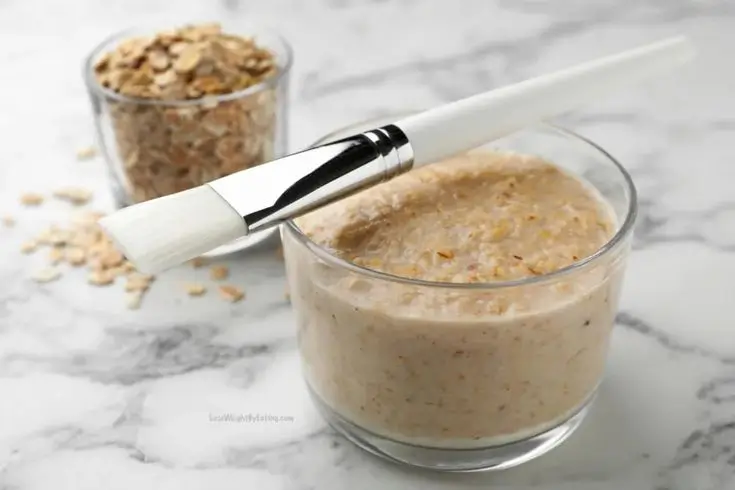
12. Ice: The Instant Redness Reducer
Ice helps reduce swelling and redness in just a few minutes. It is a quick remedy for painful pimples.
Applying an ice cube wrapped in a cloth directly on breakouts reduces inflammation instantly. Holding it for 30 seconds helps numb irritation.
Repeating this a few times a day helps calm breakouts and shrink pimples faster.
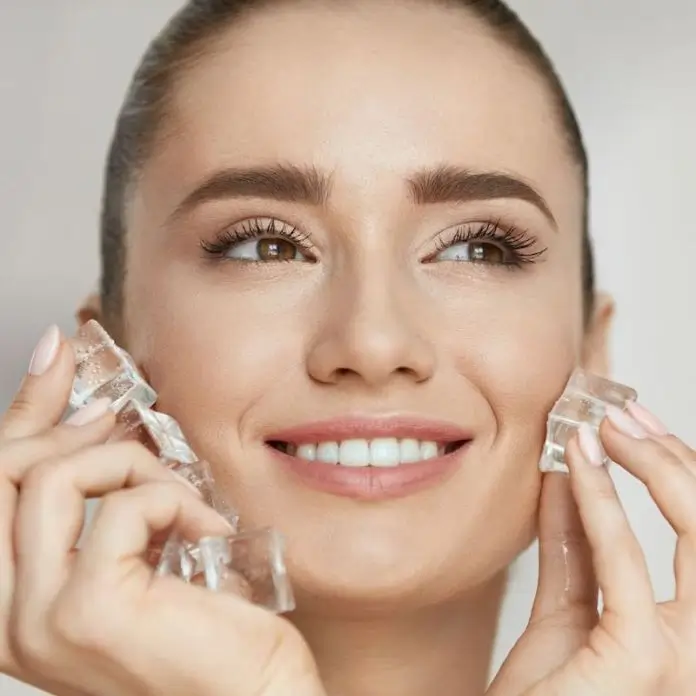
13. Essential Oils: Nature’s Potent Acne Fighters
Essential oils like lavender, rosemary, and chamomile have antibacterial properties that help clear breakouts naturally. They also soothe and heal the skin.
Mixing a few drops of essential oil with a carrier oil like jojoba makes a safe acne treatment. Applying it before bed promotes healing overnight.
These oils not only fight acne but also help prevent future breakouts when used consistently.
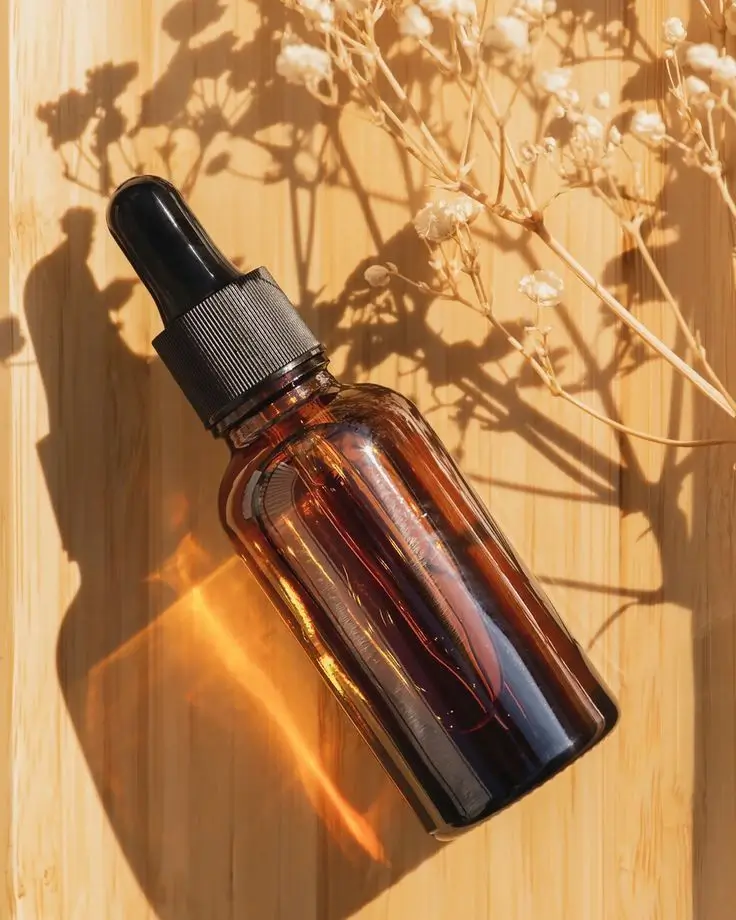
14. Garlic: A Natural Bacteria Fighter
Garlic is a powerful antibacterial ingredient that can help kill acne-causing bacteria. It also contains sulfur, which helps speed up the healing process of pimples.
Crushing a few garlic cloves and mixing them with water creates a natural acne treatment. Applying the juice directly to pimples can help reduce their size overnight.
Since garlic is potent, using it in small amounts and washing it off after a few minutes prevents irritation. It’s best used as a spot treatment rather than a full-face remedy.
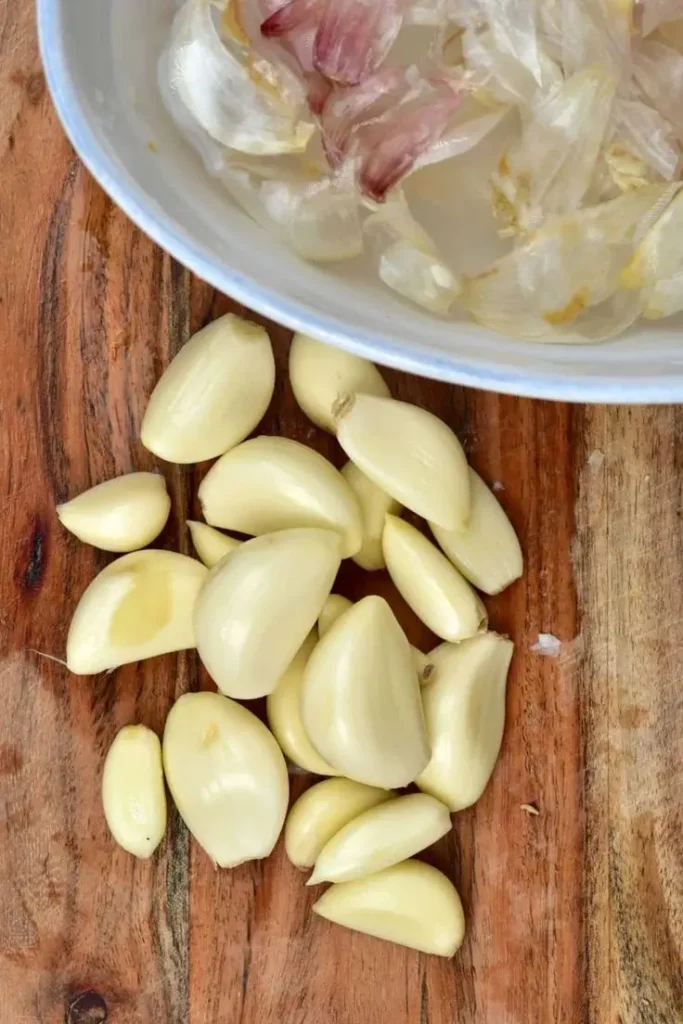
15. Jojoba Oil: A Skin-Balancing Moisturizer
Jojoba oil is a lightweight oil that mimics the skin’s natural sebum. This makes it an excellent moisturizer for acne-prone skin, as it helps regulate oil production.
Applying a few drops of jojoba oil to the skin before bed provides hydration without clogging pores. It absorbs quickly and helps soothe redness and irritation.
Using it regularly keeps the skin balanced, nourished, and less prone to breakouts. Unlike heavier oils, jojoba oil works well even for oily skin types.
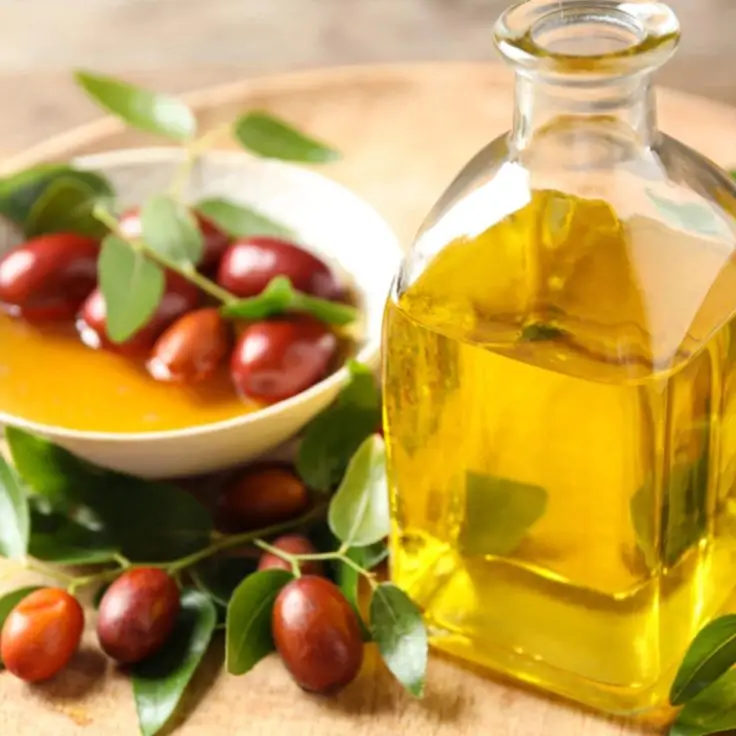
16. Cinnamon: The Circulation Booster
Cinnamon is a powerful antibacterial spice that improves blood circulation and helps fight acne-causing bacteria. When combined with honey, it creates a strong natural remedy.
Mixing cinnamon powder with raw honey forms a healing face mask. Leaving it on for 10-15 minutes allows the skin to absorb its benefits.
Since cinnamon can feel tingly, using it once or twice a week is best for preventing irritation. It helps keep the skin clear while improving overall skin texture.
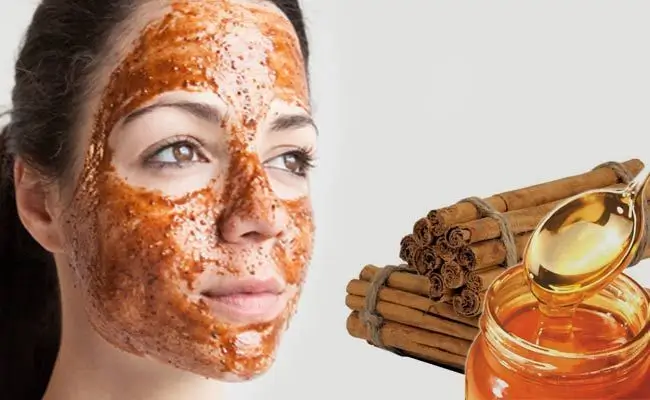
17. Zinc Supplements: A Skin-Healing Mineral
Zinc is an essential mineral that helps reduce inflammation and control oil production. Many acne sufferers have low zinc levels, making supplementation a great option.
Taking a small dose of zinc daily can help regulate hormones and reduce breakouts over time. It also strengthens the immune system, helping the skin heal faster.
For best results, consulting a doctor before taking zinc supplements ensures the right dosage. Getting zinc from food sources like nuts and seeds also supports healthy skin.
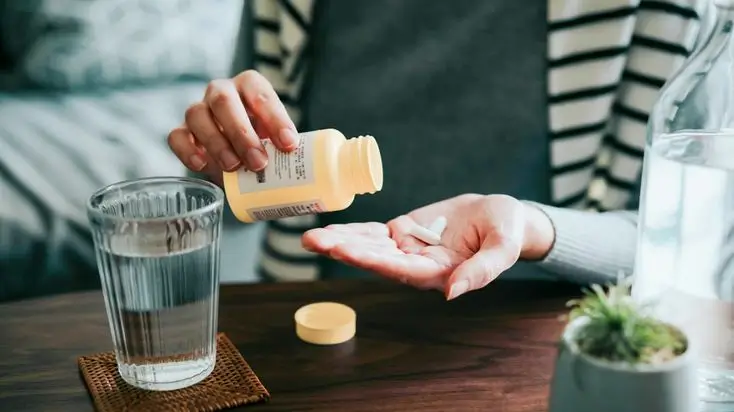
18. Cucumber: A Cooling and Hydrating Remedy
Cucumber is packed with water and antioxidants, making it a great natural remedy for soothing acne-prone skin. It hydrates and reduces redness while calming inflammation.
Applying thin cucumber slices to the face helps refresh the skin instantly. Blending cucumber into a juice and using it as a toner also provides a cooling effect.
Regular use of cucumber keeps the skin hydrated, less irritated, and more resistant to breakouts. It’s a gentle remedy that works for all skin types.
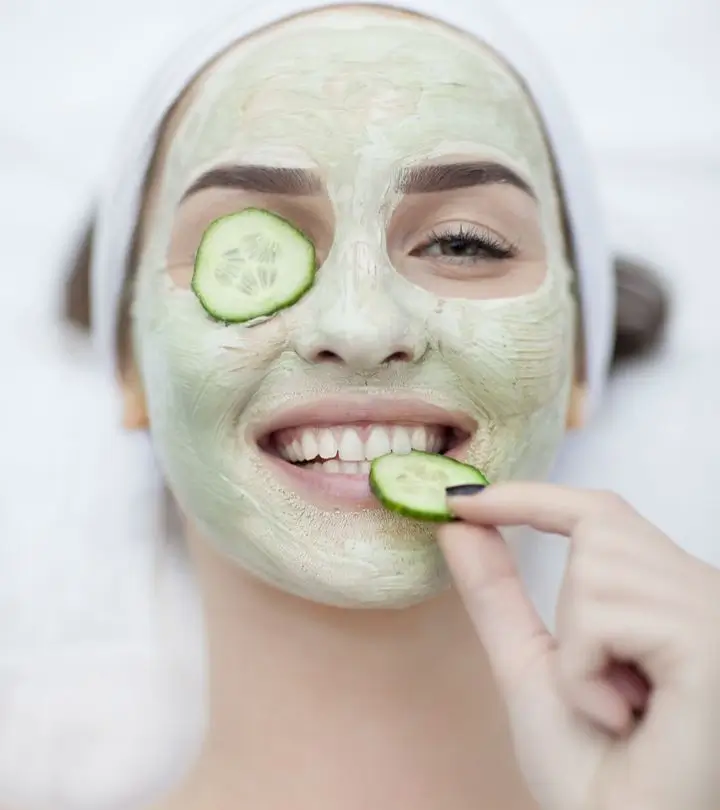
19. Spearmint Tea: A Hormonal Acne Solution
Spearmint tea is a natural hormone balancer that helps reduce acne caused by excess androgens. It works by lowering testosterone levels, which can reduce oil production.
Drinking one to two cups of spearmint tea daily can improve hormonal balance over time. Many people notice fewer breakouts after a few weeks of consistent use.
Since hormonal acne is often difficult to treat, adding spearmint tea to a daily routine provides a natural, internal solution for clearer skin.

20. Neem: The Ancient Skin Cleanser
Neem has been used for centuries as a natural antibacterial treatment for various skin conditions, including acne. It helps kill bacteria and reduce inflammation.
Applying neem oil or neem powder mixed with water creates a strong acne-fighting treatment. Leaving it on for 10-15 minutes helps clear breakouts and prevent new ones.
Since neem is gentle, it can be used several times a week to maintain clear, healthy skin. It works well for both treating and preventing acne.
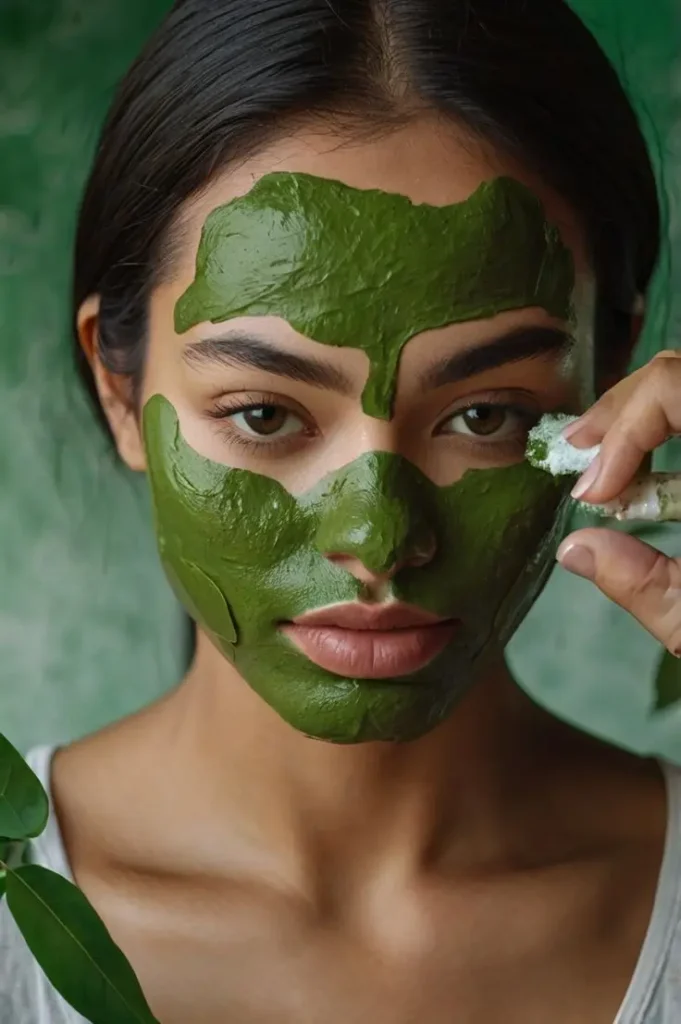
21. Probiotics: Balancing Skin from Within
Probiotics help improve gut health, which plays a major role in acne prevention. An unhealthy gut can lead to inflammation and excess oil production.
Eating probiotic-rich foods like yogurt, kefir, and fermented vegetables helps restore balance in the digestive system. This, in turn, leads to healthier skin.
For those who don’t consume enough probiotics in their diet, taking a daily probiotic supplement can help reduce breakouts and improve skin texture over time.
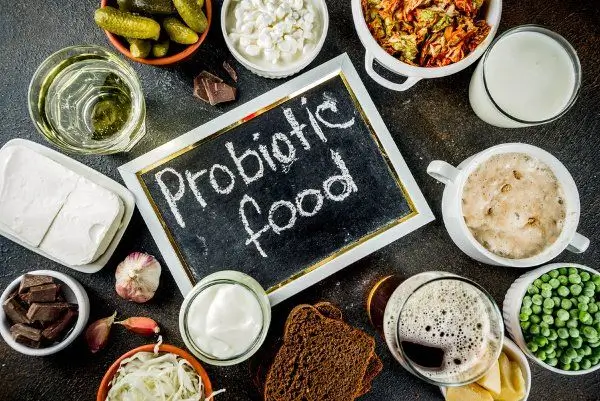
Conclusion: Nature Knows Best
Acne doesn’t have to control your confidence. Nature offers powerful remedies that not only treat breakouts but also nourish and heal the skin. From tea tree oil and honey to probiotics and neem, these natural solutions provide effective ways to fight acne without harsh chemicals.
Consistency is the key to success. Natural treatments take time, but with patience, they can transform your skin. Which remedy will you try first? Your journey to clear, glowing skin starts today!





